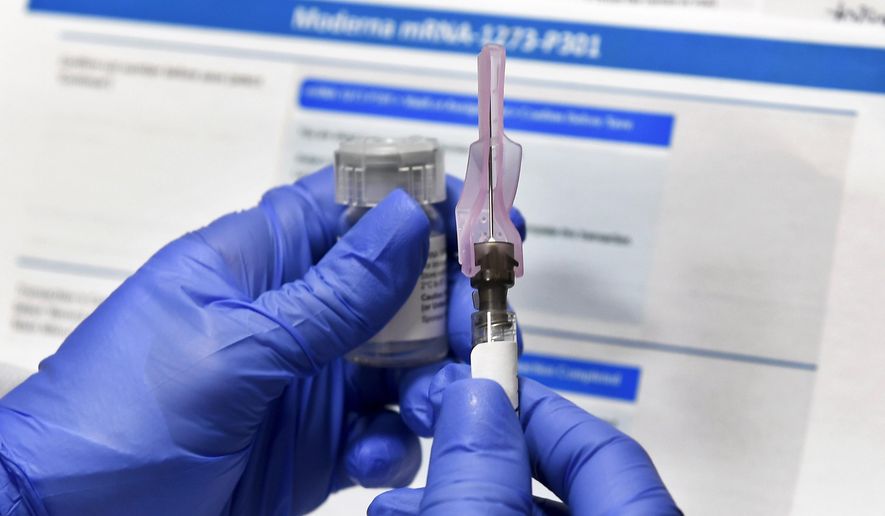The Trump administration said Thursday it is on track for hitting its goal of producing tens of millions of doses of a coronavirus vaccine by January 2021.
Officials said they will not cut corners in vetting clinical data in the coming weeks and months, and there is never a “100%” guarantee of landing a successful vaccine.
However, “we believe we are maximizing our probability of success,” said Paul Mango, deputy chief of staff for policy at the Department of Health and Human Services.
The government plans to secure enough doses for everyone in the country and offer it at no cost through a patchwork of insurance coverage through Medicare, Medicaid and private plans, plus a federal pool of funds for the uninsured.
However, there “won’t be enough on day one for everyone in the United States,” Mr. Mango said.
Distribution of the initial millions of doses will be prioritized. That’s still being worked out, but panels looking at this are focused on the elderly, such as nursing home residents, and health care workers and other essential workers who interact with the public.
The government is offering unprecedented support for private companies willing to develop a vaccine to COVID-19, which has upended normal life and killed over 166,000 people in the U.S.
The administration has offered manufacturing support to six leading candidates from AstraZeneca, Johnson and Johnson, Moderna, Novavax, Pfizer and Sanofi/GSK.
Many of them are in massive phase-three trials involving tens of thousands of human participants.
National Institutes of Health Director Francis Collins said he feels confident about the effort because there are so many options.
“If we were putting all of our efforts in a single vaccine, I’d be really worried right now,” he said.
He also said there is still “plenty of illness” in the U.S. to conduct trials here instead of abroad.
Some of the vaccines have to be stored at extremely cold temperatures of minus-70 to minus-80 degrees Celsius, while others can be stored at minus-20 or so and spend a short time in the refrigerator.
Administration officials said they will be awarding contracts to distributors soon. Each of them will have to demonstrate the ability to store and transport the shots without them spoiling.
The Department of Defense will not be involved in that distribution but “very involved” in standing up the manufacturing immense amount of raw materials that have to be acquired for the effort.
“Those factories have to be equipped, those workers have to be trained,” Mr. Mango said.
• Tom Howell Jr. can be reached at thowell@washingtontimes.com.




Please read our comment policy before commenting.